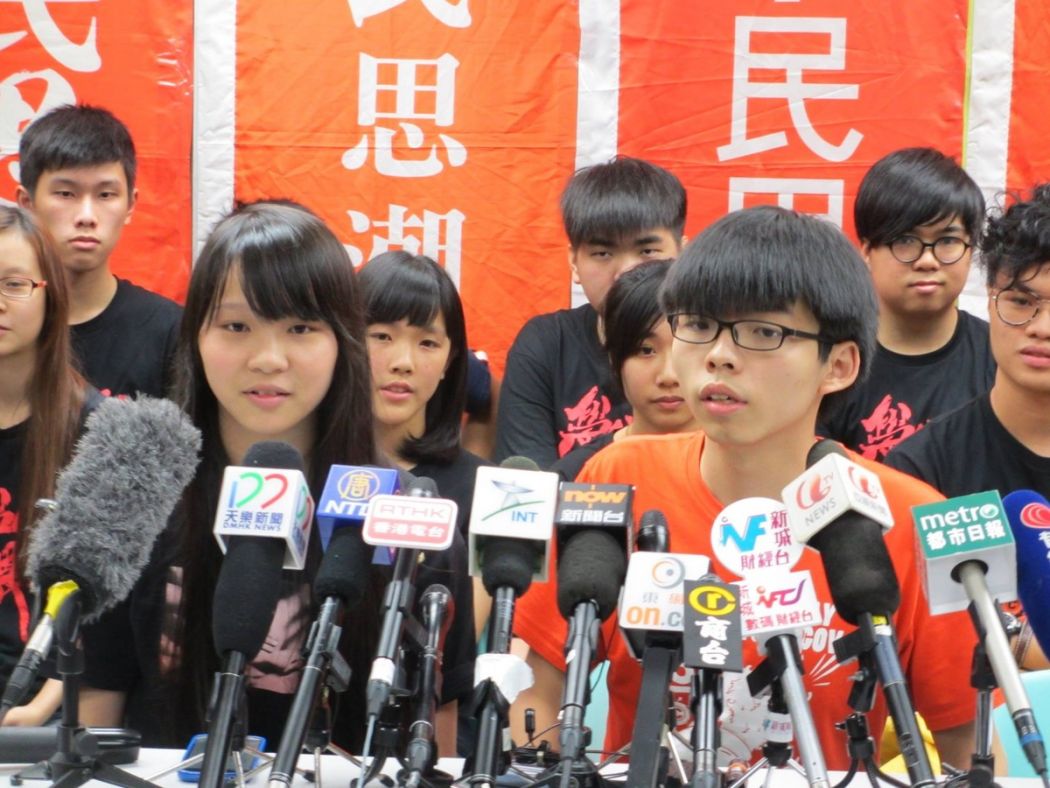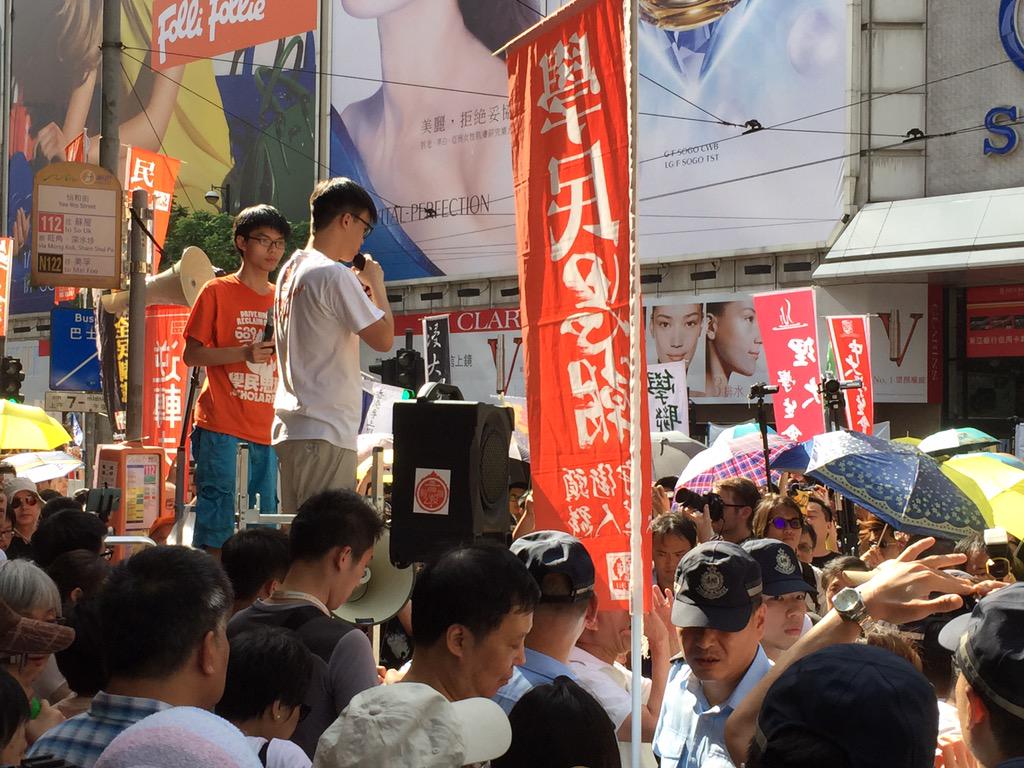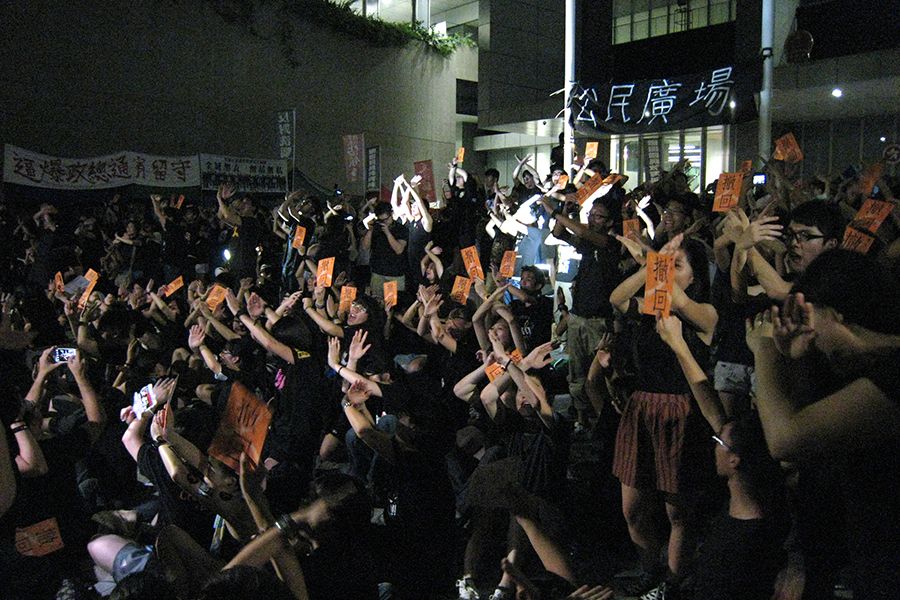Student group Scholarism has announced the suspension of its operations to make way for the formation of a new student group and a political party.
Scholarism, which was formed in May 2011, said that it had been thinking about its future position since the end of the pro-democracy occupy movement in 2014. It said that its model of supporting political movements and student movements simultaneously needed to be changed.
“A highly political Scholarism made us hard to get into schools to educate and organise secondary school students; as a student group it is hard for Scholarism to handle a self-determination movement which will last for dozens of years,” it said in a statement.

Convenor Joshua Wong Chi-fung said that he was able to visit almost 30 schools to give talks during summer breaks before the occupy movement, but he only went to one afterwards. Protesters would target him outside school premises, causing others to cancel appointments, he said.
After deliberation between members, it was decided that the group will suspend its operations though not disband.
Eyes on LegCo
A new political party to be formed next month was previously announced by some ten members including Wong and former spokesperson Agnes Chow Ting. The group will push for a referendum on Hong Kong’s future. Meanwhile, a new student group will also be formed in around six months time, headed by spokesperson Prince Wong Ji-yuet.
“The new student group will not intentionally politicise itself, as we wish for a new image, to drop the burden of the past, and focus on works about students,” Prince Wong said. “But if there are any [political] educational issues coming, such as TSA tests and teaching Chinese in Mandarin, we will continue to follow up.”
Of the 120 current members, 30 have expressed wishes to move to the new student group, though Scholarism has not consulted every member yet.
Joshua Wong denied that a split in political ideals led to the group being broken up into two new organisations.
“Every issue is related to politics – but the political party will focus on discussions on political reform and advocacy, while the student group will focus on educational issues or civic education,” Joshua Wong said.

Donations
Of the HK$1.45 million currently held by the group, HK$700,000 will be transferred to the new student group and HK$750,000 will be transferred to a fund for legal assistance. None of Scholarism’s current funds will be transferred to the new party.
“Donations previously given to Scholarism were also agreeing to the same ideals, so we think it is suitable for the funds to be given to the new student group,” Prince Wong said.
The Scholarism Fund for Legal Assistance will be managed by Tang, Wong & Chow Solicitors, for providing financial support to those in need, should they be arrested or charged due to political actions they participated in as Scholarism members.
The fund is entrusted to six Scholarism members including Joshua Wong, Prince Wong, Agnes Chow, Andrea Melody Chuh, Pauline Chan Po-ling and Chung Lai-him. They are responsible for the respective approval procedures, annual releases of audit reports and revealing the types of cases approved for the coming seven years. Remaining funds after seven years will be donated to human rights organisations.
Joshua Wong stressed that the fund would not be used in a judicial review he has filed.

From student group to political group
Scholarism was the major political group in organising 2012’s anti-national education curriculum protests. Around 120,000 joined at its peak as supporters surrounded the Central Government Complex.
In 2013 and 2014, it also pushed for the civil nomination model for the Chief Executive election. It held an electronic vote with the Hong Kong Federation of Students in which 300,000 participated.
Action by its members – namely, the storming of Civic Square at the Central Government Complex in September 2014 – kickstarted the occupy movement. Police fired 87 tear gas canisters and months-long-day occupation of Hong Kong’s main roads unfolded.
